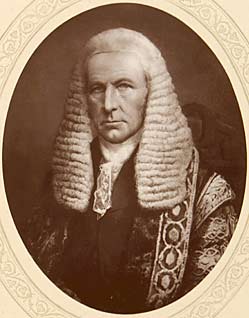| Date | Presiding officer | Issue | Ayes and noes | Position of casting vote | Ref. |
|---|
| 10 May 1860 | Speaker Evelyn Denison | Amendment to the Fisheries (Scotland) Bill | 37 | No | [5] |
| 19 June 1861 | Speaker Evelyn Denison | Motion to give a third reading to the Church Rates Abolition Bill now rather than in six months [n 1] | 274 | No | [6] |
| 1 July 1864 | Speaker Evelyn Denison | Third reading of the Tests Abolition (Oxford) Bill | 170 | Aye [n 2] | [7] |
| 7 June 1866 | Speaker Evelyn Denison | Motion to adjourn debate on the motion that 'Mr. Speaker do leave the Chair' (and that the House go into Committee on the Test Abolition Act 1867) | 46 | Aye | [8] |
| 24 July 1867 | Speaker Evelyn Denison | Motion to declare the undesirability of restricting Fellowships and Foundation Scholarships of Trinity College, Dublin to believers in the established Church of Ireland | 108 | No | [9] |
| 10 June 1868 | Speaker Evelyn Denison | Motion to give a second reading to the Married Women's Property Bill now rather than in six months [n 1] | 123 | Aye | [10] |
| 15 June 1870 | Speaker Evelyn Denison | Motion to put the question on the second reading of the Representation of the People Acts Amendment Bill | 181 | Aye | [11] |
| 25 July 1887 | Speaker Arthur Peel | Motion to adjourn debate on the second reading of the Marriages Confirmation (Antwerp) Bill [n 3] | 75 | Aye | [12] |
| 3 April 1905 | Speaker William Court Gully | Motion for an instruction to the committee dealing with the London County Council (Tramways) Bill | 171 | No | [14] |
| 22 July 1910 | Speaker James Lowther | Report stage amendment to the Regency Bill to restore words removed in Committee | 61 | Aye | [15] |
| 12 April 1938 | Speaker Edward Fitzroy | Motion for leave to bring in the Jewish Citizenship Bill (to extend Palestinian citizenship to Jews outside Mandatory Palestine) | 144 | Aye | [16] |
| 1 May 1950 | Chairman James Milner | Motion to reduce by £1000 the budget estimate for salaries in the Ministry of Transport | 278 | No | [17] |
| 1 March 1951 | Deputy Chairman Charles MacAndrew | Motion that a clause stand part of the Reserve and Auxiliary Forces (Training) Bill | 82 | Aye | [18] |
| 24 June 1952 | Deputy Speaker Charles MacAndrew | Motion for leave to bring in the Licensing at Airports Bill | 173 | Aye | [19] |
| 12 March 1958 | Deputy Speaker Gordon Touche | Motion to add a new clause to the Maintenance Orders Bill | 153 | No | [20] |
| 2 June 1965 | Temporary Chairman Herbert Butcher | Motion to retain wording of the Finance (No. 2) Bill | 281 | Aye | [21] |
| 27 May 1976 | Speaker George Thomas | Amendment to a procedural motion relating to the Aircraft and Shipbuilding Industries Bill | 303 | No | [22] |
| 10 November 1976 | Deputy Speaker Myer Galpern | Motion to disagree with a Lords amendment to the Dock Work Regulation Bill | 309 | Aye | [23] |
| 10 November 1976 | Speaker George Thomas | Motion to disagree with a Lords amendment to the Dock Work Regulation Bill | 310 | Aye | [24] |
| 10 November 1976 | Speaker George Thomas | Motion to disagree with a Lords amendment to the Dock Work Regulation Bill | 310 | Aye | [25] |
| 11 November 1976 | Deputy Speaker Myer Galpern | Motion to disagree with a Lords amendment to the Aircraft and Shipbuilding Industries Bill | 309 | Aye | [26] |
| 17 July 1978 | Deputy Speaker Godman Irvine | Motion to disagree with a Lords amendment to the Scotland Bill | 286 | Aye | [27] |
| 30 January 1980 | Deputy Speaker Bernard Weatherill | Motion for leave to bring in the Televising of Parliament Bill | 201 | Aye | [28] |
| 21 June 1990 | Deputy Speaker Sir Paul Dean | Report stage amendment to the Human Fertilisation and Embryology Bill's amendment of the Abortion Act 1967 | 197 | No | [29] |
| 22 July 1993 | Speaker Betty Boothroyd | Treaty of Maastricht (Social Protocol) – vote was later expunged [n 4] | 317 | No | [32] |
| 3 April 2019 | Speaker John Bercow | Brexit indicative vote amendment | 310 | No | [33] [34] |
| 9 December 2025 | Deputy Speaker Caroline Nokes | Motion for leave to bring in the UK-EU Customs Union (Duty to Negotiate) Bill | 100 | Aye | [35] |
